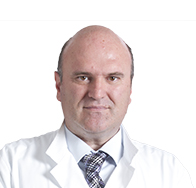- HYGEIA
- Vision & Mission
- Timeline
- Organizational structure
- Press Releases
- Social responsibility
- Awards and Distinctions
- Human Resources
- Scientific & Training activities
- Articles – Publications
- Our Facilities
- Magazines
- Healthcare Programs
- Doctors
- Services
- Medical Divisions & Services
- Imaging Divisions
- Departments
- Units
- Centers of Excellence
- Emergency – Outpatient
- Nursing Service
- Ambulances
- Patients
- Hygeia
- Υπηρεσίες
- Ιατρικά Τμήματα & Υπηρεσίες
Dental Implants & Tissue Regeneration
Teeth play an important part in the personal appearance and social life. A pretty smile enhances our whole presence and healthy teeth allow us to eat, speak and lead our life with confidence.
Healthy teeth are not a given. Caries, gum conditions, various accidents and diseases are everyday phenomena which can lead to tooth loss. The loss of one or more teeth can alter our nutritional habits, our speech, our behavior, but also our appearance. Moreover, when a tooth is lost, the bone surrounding this particular root can suffer, negatively influencing our appearance and the way we chew even more. Even if this lost tooth is replaced with common prosthetics, every year there is bone loss and lowering of the jaw. Luckily, in the last 30 years, dental implants offer a wonderful solution, replacing not only the lost tooth, but also the dental root. Dental implants represent a stable basis for artificial teeth which will look, feel and function like our natural teeth.
This particular treatment solution is the result many years of scientific research by leading scientists and organizations and of successful clinical use by thousands of dentists and specialists. As a result, dental implants represent the solution to teeth replacement we have been waiting for.
At HYGEIA Hospital, a team of specialized doctors with great experience in the field of dental implants, has placed a large number of implants with great success, both in the functional and in the aesthetic department.
In order to offer patients the best possible treatment, a Periodontologic Department, operates within the hospital aiming to conserve the positive result, offering patients organized and regular check-up. Also, at HYGEIA Hospital a unit of Hospital Dental Treatment operates for treating patients with special health problems, such as:
- Severe cardiopathy
- Uncontrollable diabetes
- Blood diseases
- Acquired immune deficiency syndrome (AIDS)
Maxillofacial surgery or periodontological problems isolated or combined with implant placement are also being treated.
- Dental implants
- Tissue regeneration
- Surgical extractiond
- Prosthetics
- Fine oral surgery
- Dental emergencies
- Dental care in hospital
What is the dental implant ?
The dental implant has the form of a small screw made of high quality and clarity titanium. Titanium is a metal which has been proven biocompatible and easily accepted by the human body.
The dental implant is placed inside the jaw bone and as time passes, the implant is embodied (bone embodied) in the jaw bone. Under normal circumstances, this healing procedure may last from 6 to 12 weeks. After this time, a crown, bridge or denture can be placed safely on the implant. Dental implants offer a stable basis for artificial teeth replacing the natural teeth in the best possible way.When is an implant recommended ?
- When the construction of a whole denture is problematic
- When partial or whole dentures cannot be accepted
- When teeth that cannot be replaced by imremovable bridges are missing
- When the neighbouring teeth of some deficit (even of just one tooth) are healthy (the grinding of healthy teeth in order to construct a bridge is avoided)
- When the improvement of aesthetic and masticating capacity is necessary, bringing back the “feeling of natural teeth”.
Conditions
We can all have implants, provided that:- Every disease in the teeth remaining in our mouth has been checked and treated.
- We care scholastically for our mouth’s hygiene
- The re-examination and implant support program is followed strictly
- Our general health condition allows it
Implants advantages
One of the most important advantages of the dental implants is that they represent a steady basis for artificial teeth and they conserve the integrity of neighboring teeth and bone structure.With the traditional methods, healthy neighboring teeth must be grinded in order to place a crown or bridge on them. Moreover, because the tooth’s root is not replaced, the bone can present atrophy later and recede even more. If the use of implant is chosen, the dental implant replaces the tooth’s lost root and represents a stable basis for the artificial tooth and thus, grinding the neighboring healthy teeth is avoided.
Implants for those wearing an artificial denture
Implants may be used for the permanent support of the whole artificial denture.Conventional artificial dentures: The conventional, removable dentures are placed on the jaw. With the use of these dentures, the bone is atrophied and with time, it recedes. As the bone recedes, dentures may no longer fit perfectly and this causes pain and problems with chewing and speaking, as well as aesthetics problems.
Removable dentures with implants: With the dentures placed on implants, the disadvantages of conventional dentures, but also the need for adhesive materials are no longer a problem. The implant represents a stable basis for the removable denture, while at the same time, it protects the bone of the jaw. The denture may easily be moved to be cleaned and then be steadily placed back in position.
Treatment example: Replacement of a tooth
1. Treatment Design
The first step in treatment if careful planning which begins by thoroughly examining your mouth’s case. With the help of X rays and casts, the doctor will decide which treatment design best fits your case.
2. Implant placement
The next step is placing the implant in the jaw. This procedure takes place at the clinic with the use of local anaesthesia or neuroleptic anaesthesia. After the implant is placed in position, the healing procedure follows, during which bone incorporation takes place. The healthy bone is able to create a strong bond with the implant within 6-12 weeks.
3. Artificial teeth
When the healing procedure is completed, the implant represents a solid ground where the artificial teeth can be placed.Dental implants care
Just like the natural teeth, implants require regular examining and conscious mouth hygiene. A big part of the dental implants success is based on whether you will keep your new teeth clean, plaque-free.TREATMENT
Dental restorations with bone incorporated implants are now a reliable alternative solution which the dental patient has.
The high success rates shown by clinical studies have overcome any objections to implant placement.Modern implantology now moves on two axis:
- The first is restorations on an existing bone substrate, where direct implantation is also included, with the same success rates
- The second is restorations in “difficult” parts of the mouth, due to:
Anatomical limitations
Bone loss due to injury or very grave periodontitis
The Department can also treat maxillofacial surgery and/or periodontological problems isolated or in combination with implant placement.
The anatomically difficult areas are the posterior parts of the jaws where the presense of “low” ground of the maxillary antrum and the “small distance” of the lower alveolar angioneural bundle from the alveolar crest, require special restoration techniques.
The technique of maxillary antrum ground elevation (with simultaneous implantation or second purpose implantation) and the thickening of the bone substrate (with simultaneous implantation or second purpose implantation) are now common practice for HYGEIA Hospital’s implantology team with rates which now are very close to 100%.
What greatly contributes in the successful course of these complex cases, aside from the necessary technical equipment and materials (bone restoration membranes, allogenic and heterogenous bone grafts), is the capacity of the HYGEIA Hospital’s implantology team to take autogenic bone grafts from several parts of the mouth and from extraoral parts of the body, such as the tibia and the iliac crest) without any discomfort for the patient.
How much does an implant cost?
The cost of treatment with dental implant differs from patient to patient. You can have a final cost estimate by the dentist once he/she decides which treatment design is best for you. Some of the factors having to do with the cost are : number or required implants, type of artificial teeth, additional procedures and treatments which may be considered necessary for the correct treatment with implant.It is very important to evaluate the long-term, and not the short-term, cost, when deciding on replacing a tooth. The choice of treatment with dental implants may require a larger initial investment, but in the long-run it proves to be a better and financially wiser solution.
How long will the implant last?
Long-term studies confirm a success rate of over 95% after a period of 10 years. The careful treatment design, the correct placement of the implant, regular check-ups with your dentist and the correct mouth hygiene are all important factors for the long-term success of your implant.Is the implant placement painful?
Since dental implants are placed after administering local anaesthesia, you will not feel anything during the placement procedure, while postoperative symptoms are mild.- © 2007-2024 HYGEIA S.M.S.A.
- Personal Data Protection Policy
- COOKIES Policy
- Terms of Use
- Privacy Policy
- Credits
- Sitemap
- Made by minoanDesign
Ο ιστότοπoς μας χρησιμοποιεί cookies για να καταστήσει την περιήγηση όσο το δυνατόν πιο λειτουργική και για να συγκεντρώνει στατιστικά στοιχεία σχετικά με τη χρήση της. Αν θέλετε να λάβετε περισσότερες πληροφορίες πατήστε Περισσότερα ή για να αρνηθείτε να παράσχετε τη συγκατάθεσή σας για τα cookies, πατήστε Άρνηση. Συνεχίζοντας την περιήγηση σε αυτόν τον ιστότοπο, αποδέχεστε τα cookies μας.
Αποδοχή όλων Άρνηση όλων ΡυθμίσειςCookies ManagerΡυθμίσεις Cookies
Ο ιστότοπoς μας χρησιμοποιεί cookies για να καταστήσει την περιήγηση όσο το δυνατόν πιο λειτουργική και για να συγκεντρώνει στατιστικά στοιχεία σχετικά με τη χρήση της. Αν θέλετε να λάβετε περισσότερες πληροφορίες πατήστε Περισσότερα ή για να αρνηθείτε να παράσχετε τη συγκατάθεσή σας για τα cookies, πατήστε Άρνηση. Συνεχίζοντας την περιήγηση σε αυτόν τον ιστότοπο, αποδέχεστε τα cookies μας.





























 Zambaras Dimitrios
Zambaras Dimitrios 











